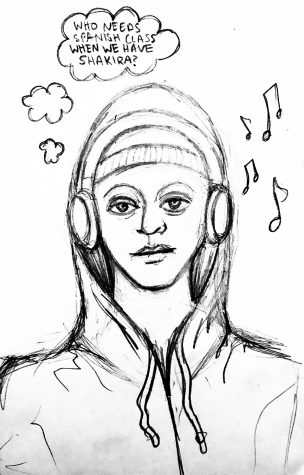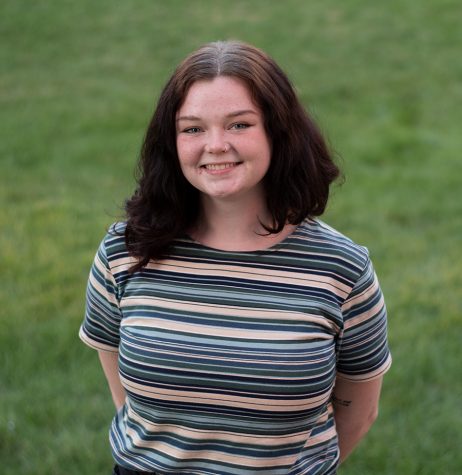We should all listen to more multilingual pop music
December 7, 2018
 Lili Traviato
Lili Traviato
The use of Spanish in American music has, until recently, only appeared sparingly in music’s top charts.
This is despite there being 40.5 million Spanish speakers in the U.S, according to a March 2018 CNN article.
Cardi B’s song “I Like It” featuring Puerto Rican rapper Bad Bunny and Colombian artist J Balvin made history, as Cardi B became the first female rapper to have two songs reach Billboard’s coveted No. 1 spot on the charts, according to Billboard’s website.
This is an even more significant triumph because most of the lyrics are Spanish, and even those who don’t speak the language love the song.
DJ Snake’s song “Taki Taki” features Cardi B, Puerto Rican singer Ozuna and Selena Gomez. As of Nov. 26, it holds the No. 2 spot on Shazam’s Global Top 100 chart and is mostly sung in Spanish.
Bad Bunny’s “MIA” features Canadian artist Drake singing in Spanish and is in the top 20 on Shazam’s United States Top 100 chart. The cultural importance of this emergence of the Spanish language in mainstream music can’t be understated.
I am thrilled to see this becoming the mainstream. I am a Spanish major and found a love of the Spanish language early in high school.
Since then, I have sought out music sung or performed in Spanish not only because I could understand the words, but because the language itself is overwhelmingly beautiful.
The trend of Spanish language in American music is not completely new. The sample track of Cardi B’s “I Like It” that recurs throughout the song is “I Like It Like That,” originally by the Latin-Bronx boogaloo musician Pete Rodriguez, popular in the 1960s.
It’s not just the exposure to the Spanish language to an English-speaking majority that is important, pero el uso de los dos idiomas juntos, but the use of the two languages together demonstrates that music is being made as accessible as possible.
We don’t listen to classical music because we can identify every note and instrument in the composition; we listen because it’s pleasing to us. I think that music in any language is ultimately enriching no matter if the listener speaks that language or not.
Listen to music performed in any other language even if you don’t speak it.
Listen to learn. Do this so that you can fight back against the racists who tell others to speak English in the supermarket because “this is America.” Yes, this is America, and millions of people who live here speak Spanish.
What is most important is that the U.S. is moving toward a sonic experience that is representative of our diverse country, and I hope things only progress in this direction.







